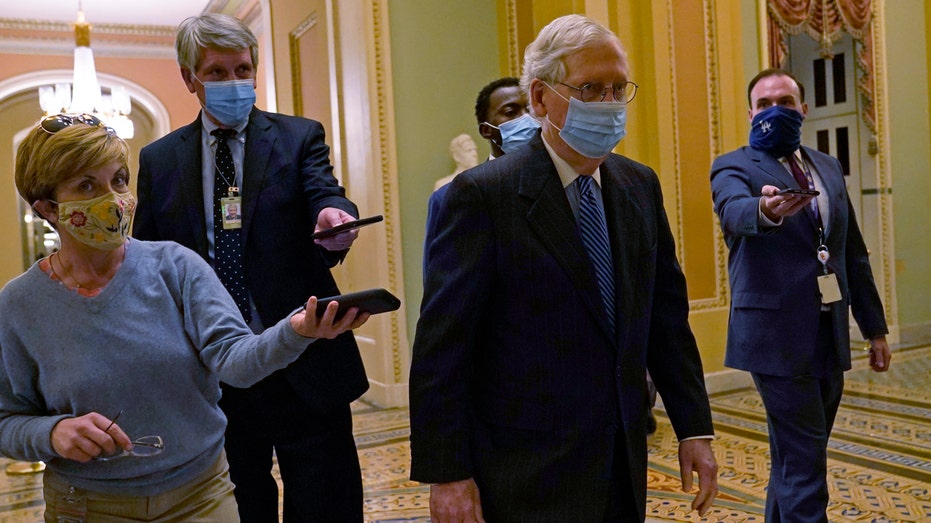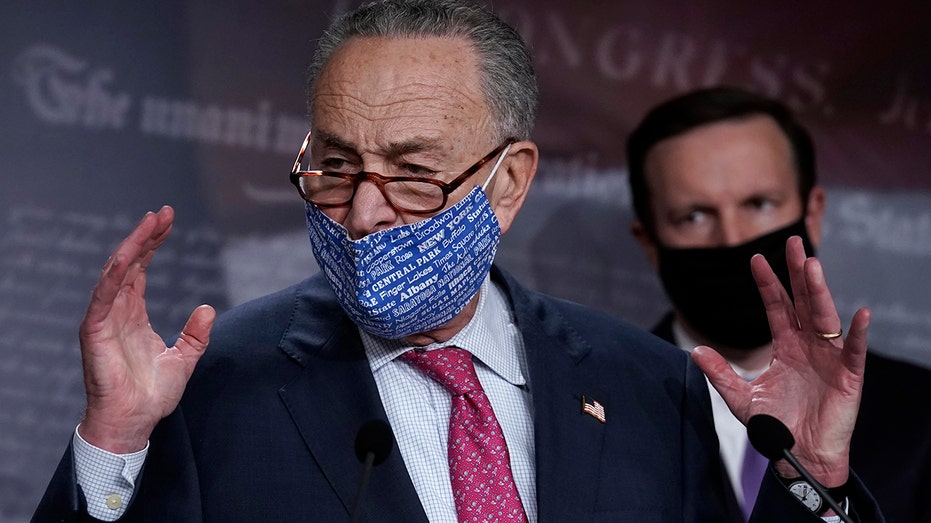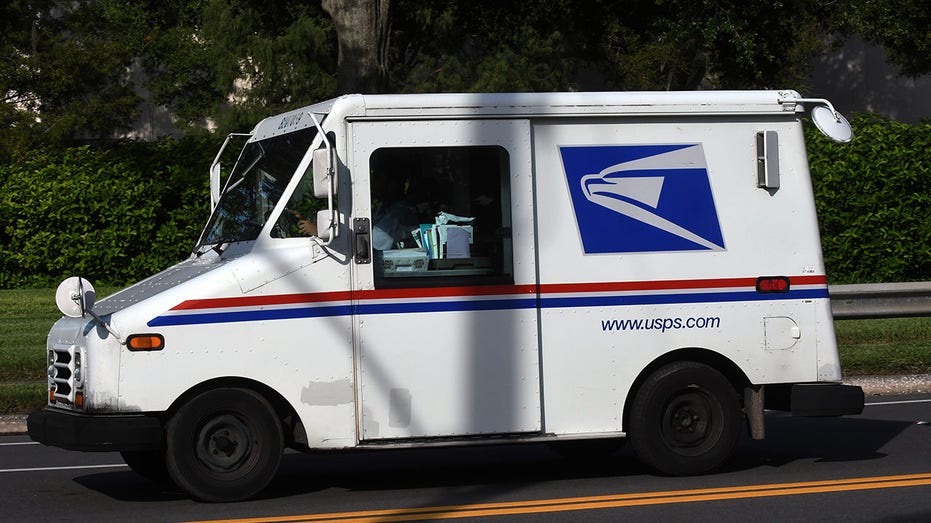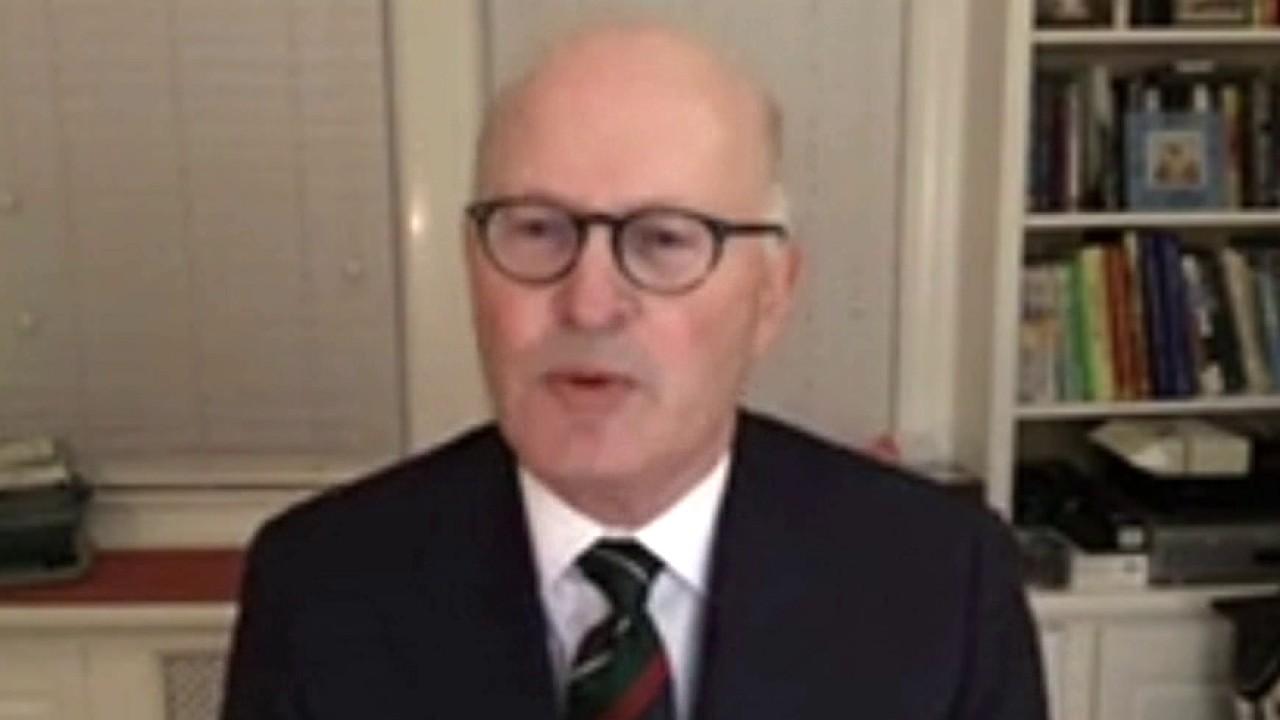Coronavirus relief deal by the numbers: What's in the $900B package Congress is set to vote on today?
PPP money, eviction ban and more included in $900 billion compromise legislation
Congressional leaders reached a compromise on a $900 billion coronavirus relief deal on Sunday after months of on-and-off negotiations and debate, with each party blaming the other for blocking stimulus efforts.
"More help is on the way," Senate Majority Leader Mitch McConnell, R-Ky., said Sunday. “Moments ago, in consultation with our committees, the four leaders in the Senate and the House finalized an agreement... We’ve agreed to a package of nearly $900 billion. It is packed with targeted policies to help struggling Americans who have already waited too long."
Added Senate Minority Leader Chuck Schumer: "While this bill is far from perfect – nor is it the bill that we would pass if Democrats had a majority in the Senate – it is a strong shot in the arm to help American families weather the storm."
CONGRESS PASSES STOPGAP BILL TO AVOID GOVERNMENT SHUTDOWN; NEW CORONAVIRUS RELIEF DEAL REACHED
"For the 20 million people who would lose unemployment benefits the day after Christmas: help is on the way," Schumer continued. "To the millions of small business owners who are worried their businesses would go under: help is on the way. To families struggling with less money: direct payments means help is on the way."
The compromise includes a potpourri of measures with some aiming to immediately stimulate the economy while others are going toward longer-term goals like vaccine distribution and reopening schools.
The coronavirus relief deal is attached to an omnibus bill that will fund the government through September 2021. If things move smoothly, the Senate would be set for a late afternoon or evening vote on the package after it clears the House, setting the legislation up for President Trump's signature before the next looming government shutdown at midnight.

Senate Majority Leader Mitch McConnell of Ky., walks past reporters on Capitol Hill in Washington, Tuesday, Dec. 15, 2020. McConnell and other congressional leaders Sunday announced they'd come to a deal on coronavirus relief. (AP Photo/Susan Walsh) (AP)
Here's what's in the coronavirus bill set to pass at the height of the holiday season.
Direct payments
The bill includes $600 direct payments for individuals making less than $75,000 per year and to couples making up to $150,000 per year. The total allocated for the checks in the legislation is $166 billion.
This is less than the $1,200 checks the government sent earlier this year and some members of Congress, including Sen. Bernie Sanders, I-Vt., and Sen. Josh Hawley, R-Ark., wanted this time around.
Reopening schools
The bill allocates a total of $82 billion to education, with $54 billion for elementary and secondary; $23 billion for universities; $4 billion in a Governors Emergency Education Relief Fund; and about $1 billion to Native American schools.
Boosted unemployment insurance
After a $600-per-week federal unemployment benefit increase expired in July, a $300-per-week version was included in the current relief deal.
It expires on March 14, which could set up a new showdown on whether to extend it between President-elect Biden and congressional Republicans who have been showing a renewed commitment to watching the deficit as Trump is set to leave the White House.
The provision will cost the taxpayers $120 billion.
WINGSTOP CEO CRITICIZES GATES FOR SAYING RESTAURANTS ‘SADLY’ NEED TO SHUT DOWN
PPP
The popular Paycheck Protection Program (PPP) is one of the priciest elements of Congress' coronavirus relief deal, totaling $284 billion. The forgivable loans helped businesses survive harsh government lockdowns in the spring, which some governments are beginning to reimpose with rising coronavirus cases in the winter.

Senate Minority Leader Chuck Schumer, D-N.Y., joined by Sen. Chris Murphy, D-Conn., right, and members of the Senate Committee on Health, Education, Labor and Pensions, talk to reporters about shortages of personal protective equipment for hospitals
The bill also makes PPP loans tax-exempt. Beyond the PPP money, there's also an additional $41 billion for other small-business programs.
Fed lending
Sen. Pat Toomey, R-Pa., and Schumer late on Saturday came to an agreement on lending powers for the Federal Reserve that resolved one of the last major sticking points in coronavirus relief negotiations.
Toomey sought to preserve Congressional oversight over the Fed's emergency lending powers while Democrats worried that the GOP proposal would hamper the Fed's ability to respond to economic emergencies. The compromise, according to Schumer removed "the dangerous, 'similar to,' language in [Toomey's] bill that was overly broad."
Toomey said that the compromise accomplished the goals he sought to meet, which included repurposing unused funds; shutting down certain Fed lending facilities; preventing it from reopening those facilities; and barring the Fed from creating "clone" facilities.
NEW CORONAVIRUS STRAIN WORRIES PRE-MARKET STOCKS
"The intent of the shutdown could not be supported by simply creating a clone and calling it something different," Toomey said. "Those were the only goals, And we achieved every one of those goals."
Vaccine
The compromise bill will allocate about $30 billion for coronavirus vaccine procurement, distribution and a stockpile of vaccines.
Testing and more
Congress will spend $22 billion on testing and contact-tracing efforts that have been a priority since the summer. There is also $9 billion in aid for health care providers and $4.5 billion aimed at mental health efforts.
Rent and evictions
The bill creates a federal rent assistance program which will be distributed by state and local authorities. The bill also extends a federal eviction ban until Jan. 31.

A mail carrier begins his route in a delivery truck on Aug. 17, 2020 in Orlando, Fla. (Photo by Paul Hennessy/NurPhoto via Getty Images)
GET FOX BUSINESS ON THE GO BY CLICKING HERE
Surprise medical billing
Members of Congress came to an agreement to prevent unexpectedly high medical bills for Americans, something that has been debated for months and will be in the end-of-year must-pass legislation. House Speaker Nancy Pelosi, D-Calif., on Sunday said "we're very proud that surprise billing is part of this."
Assorted
The deal set to be voted on Monday also included $26 billion in food and farm aid, split equally between stimulus for farmers and ranchers, and an increase in food stamp benefits and money for food banks. It also gives $10 billion to the U.S. Postal Service and $10 billion in money for child care.
Fox News' Jason Donner, Chad Pergram, Sha Smith, Ben Florance and the Associated Press contributed to this report.




















